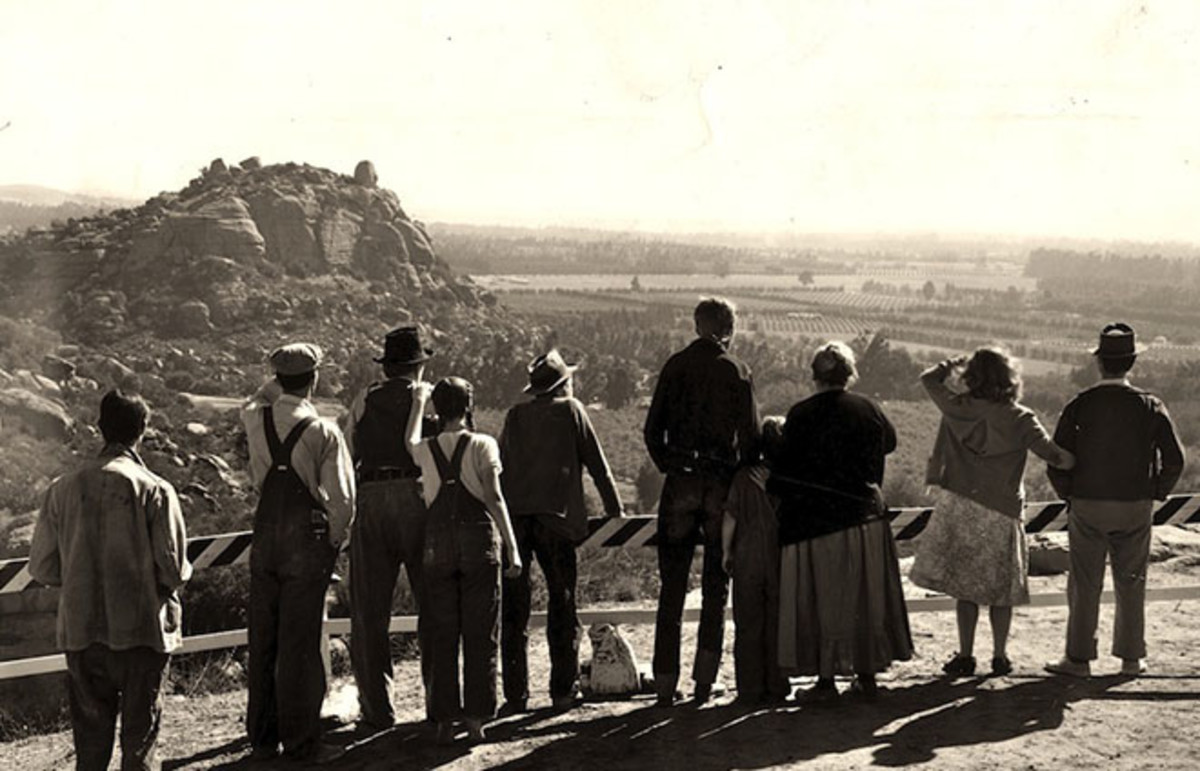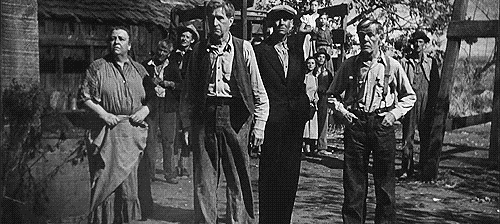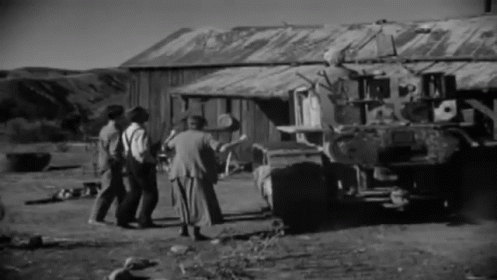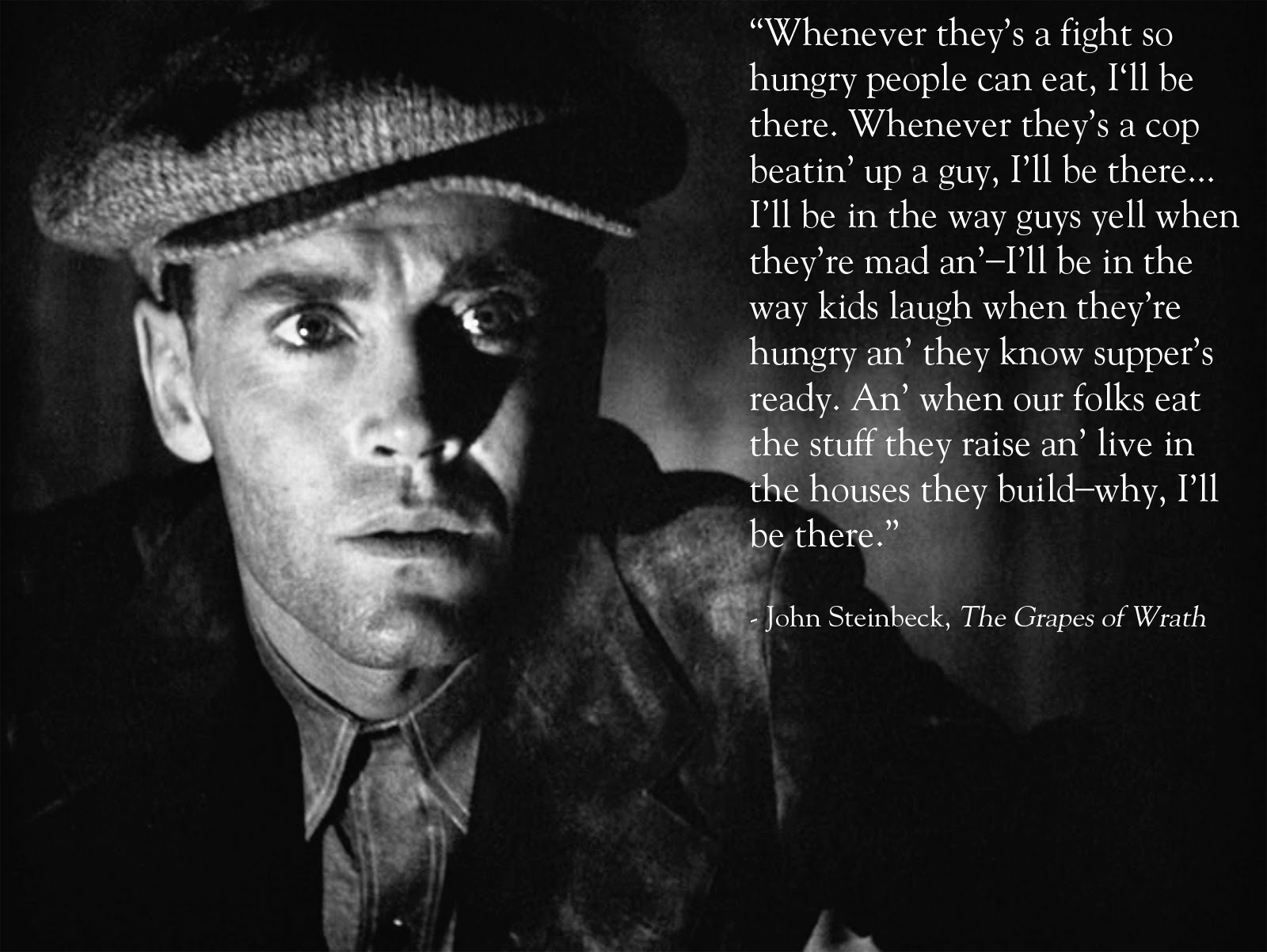John ford scripted a masterpiece on one of the most pitiful a tragic event in American history infamously known as “the Dust Bowl”. Based on John Steinbeck’s seminal work the screen adaption retained the author’s scrutiny and the astounding grief for humanity and its soul.
The perpetual scuffle between life and death and the endurance of human spirit etched throughout this classic work. It’s not a mere movie but an important piece of socio-economic saga focused on one of the harrowing events of the twentieth century. The great depression somewhat dragged united states back to its root to ponder over their unequal distribution of abundant wealth and disproportionate growth of the great Jazz era.
The master crafted and molded each intricate details of Steinbeck’s classic and fabricated an all-time great cinema which filled with maladies and woes of the working class and migrant workers. All universal classics of any aesthetic art form possess some virtue which made them all-time great, for the grapes of wrath it’s the socio-economic commentary and the forecast of the rising of socialism. Even in the current era it fully embodied the strife and outcries of millions of migrant workers who uprooted their whole existence and became phantoms of living self.
The scrupulous camera work and the meticulous editing heralded a vision of capitalism with its agent obsessed with profiteering while the populous lays naked and hungry. John ford with his conventional directorial gesture like the abandoned thresholds, the close shots, evoke a drama of human spirit and its endurance which assimilated into a cornerstone of ageless classic with universality and unequivocal humane touch. In the vast library where the celluloid literature of the screen is stored there is one small, uncrowned shelf devoted to the cinema's masterworks, to those films which by dignity of theme and excellence of treatment seem to be of enduring artistry, seem destined to be recalled not merely at the end of their particular year but whenever great motion pictures are mentioned.
The stellar cast of this motion picture enriched and uphold the aesthetics of drama and delivered a memorable ensemble of authentic and mesmerizing performance. They gave this hollowed saga its soul and belonging entwined with nostalgia, hope, despair, and melancholy all at the same instance. Be it may hennery Fonda's Tom Jodd or Jane Darwell’s Ma jodd even the fragile grandpa played by Charley Grapewin beheld the tumultuous portrayals with grace and brilliance.
The portrayals made us understand the despair of the dust bowl and emblazed the human resilience on the silver screen. Henry Fonda's ragged tom jodd and John Carradine’s preacher both this character wondered the boundary between moral righteousness and evil deed, their dialogues and monologue illuminate the shadow of moral ambiguity.
Ma jodd was an embodiment of feministic virtues and strength on whose cornerstone a family was built prospered and endured, which should be a poignant theory for feminism not so-called pseudo feminism which was promoted and celebrated in this current era. In all its glory as a heart-wrenching tale, it also conveyed the stark difference of working class and owner class in the capitalistic dystopia.
When asked by his mother how would she know that her son was alive and well when he wants to wander away and fight for social justice Tom Jodd replied-
“I'll be all around in the dark. I'll be everywhere. Wherever you can look, wherever there's a fight, so hungry people can eat, I'll be there. Wherever there's a cop beatin' up a guy, I'll be there. I'll be in the way guys yell when they're mad. I'll be in the way kids laugh when they're hungry and they know supper's ready, and when the people are eatin' the stuff they raise and livin' in the houses they build, I'll be there, too.”
This monologue by tom jodd was an allegory for the rise of socialism; the strive for justice of a common man and in brief the immortality and omnipresence of human spirit and idea. That’s why the protagonist remained a wanderer amid horizons just like the “searcher”.
I am going with 8.5/10 for this saga of an authentic U.S. farming family who loses their land. They wonder, they suffer, but they endure. They are never quite defeated, and their survival is itself a triumph and above all, it’s a celebration of life and its finality. The message is boldly displayed but told with characters of such sympathy and images of such beauty that audiences leave the theater feeling more pity than anger or resolve.
So friends watch it while you can So that you have no regret.







Comments
Post a Comment